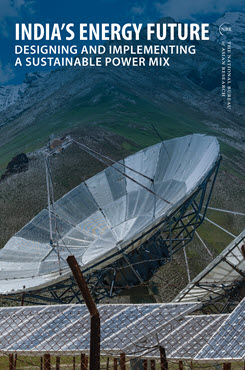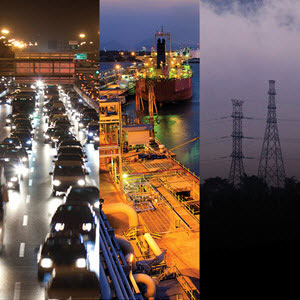India’s Electricity Outlook and the Challenges for Achieving a Sustainable Power Mix
This essay examines the near-term outlook for India’s energy sector and considers the challenges facing the country’s ambitious plans through 2030 for transitioning to renewable energy.
EXECUTIVE SUMMARY
MAIN ARGUMENT
In recent decades, the electricity sector in India has seen a dramatic transition as the country achieves near-universal electrification, adequate generation reserves, and connectivity through a robust country-wide grid. The sector is also undergoing an ambitious transition toward higher shares of renewables on the back of increasingly competitive costs and commitments to address energy-related CO2 emissions. In order to achieve the flexibility in grid operations required to accommodate the rising share of renewables, systematic changes will be necessary in almost all aspects of the power system—from passing new policies and regulations to building physical infrastructure and from managing demand response and optimal utilization of existing assets to introducing new technologies.
POLICY IMPLICATIONS
- Achieving India’s stated policy goals will require making systematic changes in nearly all aspects of the power system, including supply and demand management, technology deployment, and infrastructure upgradation; resolving legacy challenges and distortions; addressing the social and political ramifications of the transition; increasing domestic manufacturing and supply chain reliability; and providing access to adequate and affordable financing mechanisms.
- Fulfilment of past commitments on climate finance and addressing concerns about developmental constraints and technology transfer will be critical to supporting India’s transition.
A.K. Saxena is Senior Fellow and Senior Director of the Electricity and Fuels Division at The Energy and Resources Institute (TERI).
T.C.A. Avni was formerly a Research Associate at The Energy and Resources Institute (TERI).



 Toward Energy and Climate Security: Pathways and Priorities for Cooperation in 2022
Toward Energy and Climate Security: Pathways and Priorities for Cooperation in 2022
